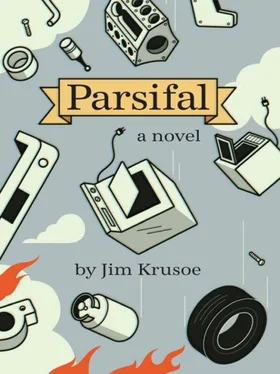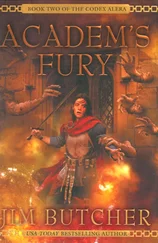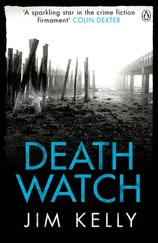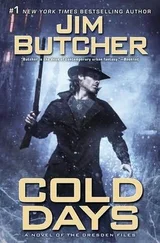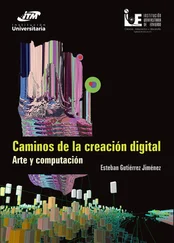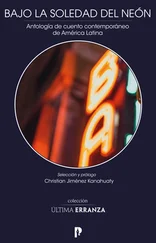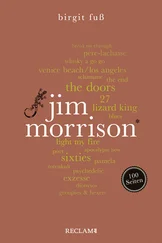Misty + Black Dog + Cody =?!
Despite his scar, or possibly because of it, you might be surprised how many people, once they get over their initial shock at his appearance, ask him, “Parsifal, in your opinion what is the best pen for me?”
“Ha, ha,” Parsifal usually laughs to put them at ease. Then he continues: “Well, that’s a difficult question, and one that demands more information than what you’ve provided me. In other words, outside my firm belief of the superiority of a pen which draws in its ink supply by means of a piston, and that preferably also has a window to view the ink supply through, the question of which is the pen for you depends largely on what sort of writing you actually do. Also your favorite color. Here, by the way, I am putting aside the question of what is the most comfortable size and weight of a pen, which I advise you to discover for yourself by cutting several dowels of varying width and experimenting not only with how they feel in your hand but also by tying small weights (ordinary fishing sinkers will do nicely) on to them to find what is most enjoyable.
“Once you know what size is good for you, the rest depends on the sort of nib you prefer much more than the actual pen. Nibs run from fine (and extrafine) to broad and extrabroad. If you are an accountant, for example, and require neatness and the ability to squeeze several numbers into a relatively small space, then you might prefer an extrafine. On the other hand, if you are a high-powered executive who spends many hours of the day signing various documents, you may well enjoy a broad nib, one that will make a bold impression and say, Yes, I have signed this and I have a whole raft of high-priced lawyers at my beck and call who are all waiting to sue your ass off . That is, unless the document is of an incriminating sort, in which case you should probably borrow someone else’s pen.”
At this point usually one of two things will happen. Either the person Parsifal is instructing will pull out a piece of paper and take feverish notes or he or she will turn slowly away, so as not to alarm Parsifal by any sudden movements, and leave. The second is the choice that most make.
If they do stay, however, sooner or later Parsifal will add that one of the other benefits of being a fountain pen user is that not only does a person have a greater variety of tips to choose from in terms of line width, but he or she also has a choice between round-tipped, oblique (as with Misty’s Waterman), and stub, a nib that is exactly like it sounds, cut off at the end to make a sort of spade, a satisfying nib to write with for the workmanlike slap it makes against the page, even though it may well be less agile than the traditional rounded tip. “Nibs,” he is sure to add at this point in the conversation, “also vary from flexible, meaning those that produce a greater line variation, to firm or stiff. In addition, you can find them in steel, gold, and titanium — even glass — although, the most popular is gold.”
This isn’t word for word what Parsifal will answer each and every time, but it’s fairly close.
A pit to catch an animal. A deer, for example.
“In my experience,” Parsifal tells those who ask, “there are two kinds of people: those who enjoy complications and subtlety, and those who do not. If you are not the sort of person who enjoys complications and subtlety, then a fountain pen is not for you.”
A pit.
His own.
A life in ruins , he thinks.
when you think of fire,” Joe asked Parsifal one day, “what comes into your mind?” “Warmth,” Parsifal said. “Light. Small birds roasting on a spit. Flame. Burning logs (does that count?). Orange. Screams. Red. Ouch. Mother. Why do you want to know?”
Joe lifted a paperweight from his desk, tossed it into the air, and caught it several times. It was nothing more than a black stone — a piece of lava or something — but the therapist seemed to find it comforting because he kept on playing with it.
Then Joe picked up his yellow legal pad and wrote something down. He got up. “Excuse me,” he said, “I need to use the bathroom.”
Joe left, taking the pad with him, his sandals slapping the floor on his way to the bathroom in the hall outside his office. Parsifal knew that bathroom well. It was squalid, with a hand dryer that only put out cold air. It had a dirty sink and a stall with a door that wouldn’t close, the inside of which had been covered with various violent and incomprehensibly threatening messages left, he assumed, by Joe’s other clients — not a good lot, all in all. Parsifal got up and hefted the stone in his hand. It didn’t feel special. It didn’t feel like anything but a stone.
After a surprisingly long time, Joe returned. “What was it you were asking?” he said.
“I wanted to know why you asked me about fire?”
“Oh,” Joe said. “For no particular reason.” He picked up the stone and put it down again. “Maybe I was feeling chilly.”
What is this fear that falls into my heart?
The body Parsifal had discovered in the pit he had dug to catch a deer was of a man, and clearly the stranger had died instantly, face down, impaled on the spikes Parsifal had wedged into the ground a few days before. The severity of the impact had been no doubt increased by the weight of a large sack of brown rice the man had been carrying when he had fallen, and the spikes had run straight through the stranger’s chest. The stranger was wearing a dark suit and a baseball hat, which, oddly, had remained on his head, even as the rice scattered all around his body. Because many of the grains were covered with the man’s blood, they gave the appearance of the red sprinkles on the tops of the cupcakes that Conrad used to bring him, as a special treat, once in a while. Someone, either the man or some other person, had tied several bags around the dead man’s waist, and these were also stained by blood, and worse.
What would Pearl say? Parsifal wondered. He was only fourteen, not quite grown, and Conrad was gone, as usual, so wasn’t around to give any advice on the matter. As a result, Parsifal acted out of instinct as much as anything. First, he knew enough that for him to touch the body would only leave behind a trail of evidence that might confuse anyone who ventured this far into the forest to search for the man. The last thing he needed, then or ever, was a prison term. Second, the man was clearly dead, and his grave had already been dug, so to speak. That would have been the hard part, anyway, so all Parsifal needed to do was to fill it in with the dirt he had pushed to one side earlier when he had dug the hole, and then afterward to cover that with a layer of leaves and tamp it down so that only an eye trained in woodcraft would be able to detect any irregularity. In a month not even an expert would know what lay beneath. It didn’t even seem like a choice: Parsifal left the stranger right where he was, not even bothering to jump into the hole to retrieve the man’s wallet, which might have been useful to Pearl and him, and filled the hole to the brim with dirt. Then he sprinkled leaves on top and stood back to look at his handiwork. It looked fine.
When Parsifal returned home that night, rather later than usual, Pearl asked him where he had been.
“Out checking my traps,” he told her, not untruthfully. He would wait, he reasoned, until his father returned to reveal more of what had happened. Clearly, that dead man wasn’t going anywhere soon.
“Any luck?” his mother wondered.
“Yes and no.”
But then, soon afterward, the fire came. Parsifal left the forest, and he never did manage to locate his father’s house in the city.
Blindfolded, Parsifal wandered with his improvised cane outstretched before him, bumping his head into tree limbs and banging his shins on stumps, sticking his hands into thickets of briars, like a slow-motion game of Pong, and although the scratches, bumps, and bruises did have a familiar feel to them, he couldn’t come up with anything specific location-wise. Wet leaves, yes. Moss, yes. The cold wetness of his shoes in a stream, yes again, but it was the wetness of no particular stream that he could identify. He decided that later, when he took the blindfold off, he would change his socks.
Читать дальше
